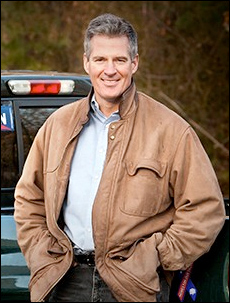Public Policy Polling (April 5-7; 1,052 registered Kentucky voters) tested Senate Minority Leader Mitch McConnell (R) as he prepares for re-election. The poll was taken after actress Ashley Judd (D) stated that she would not challenge the senator in 2014.
As has been detected in other polls, McConnell’s job approval is poor. According to this study, only 36 percent of the sampling universe approves of his performance as the state’s senior senator, versus 54 percent, who do not. By contrast, fellow Kentucky Republican Sen. Rand Paul’s approval index is 46:39 percent. When asked whether the respondents hold a higher opinion of Sen. Paul or McConnell, by a 42-24 percent split the group responded Paul.
Right now, the Democrats do not have a viable candidate to challenge the Republican leader. If first-term Secretary of State Alison Lundergan Grimes were to run — an alternative that she has not ruled but is not likely to pursue — McConnell would lead her 45-41 percent. If defeated representative Ben Chandler (D-KY-6), for example, were to become the Democratic nominee, the senator would lead him by a similar 46-41 percent margin. Chandler also gives no indication that he will enter the race.
Though McConnell is unpopular, he still fares reasonably well in ballot tests against the most viable potential Democratic opponents. Unless a top-tier challenger comes forward, McConnell must still be rated as a clear favorite for re-election.



